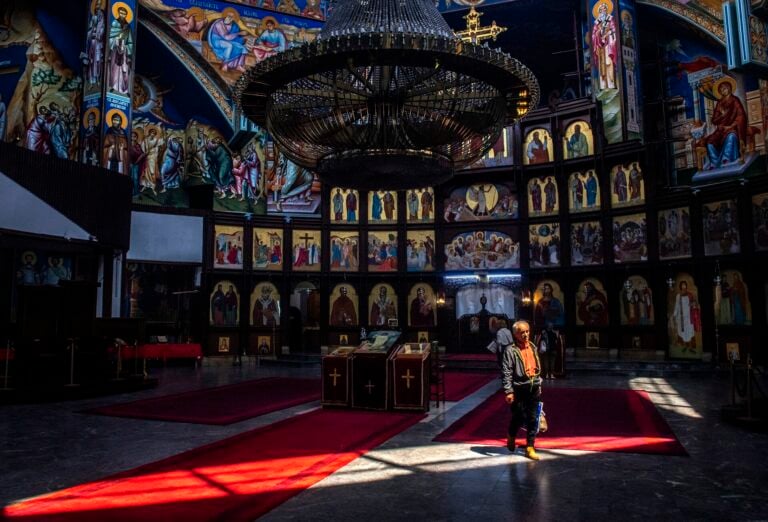Earlier this week the official meeting of the Holy Synod of the Ecumenical Patriarchate decided that all Ukrainian communities and parishes of the Archdiocese of Australia, which until today had been under the jurisdiction of Metropolitan Anthony of Hierapolis, will henceforth be under the jurisdiction of the Archdiocese of Australia.
The parishes will as of 10 May commemorate Archbishop Makarios of Australia as their canonical shepherd.
In the announcement of the Ecumenical Patriarchate, it is stressed that both Metropolitan Bartholomew and the Holy Synod congratulate him on his “successful pastoral work and ministry on the fifth continent”.
With this move, the Synod recognises the administrative capacity, the historical and cultural connection between the Greek Orthodox Church and the Ukrainian Church and the need to strengthen them and ensure their progress.
The jurisdiction of the Holy Archdiocese of Australia passes to the other Ukrainian communities in Australia, since the Autocephalous Church of Ukraine does not have canonical jurisdiction in the Diaspora.
More specifically, the Synod of the Ecumenical Patriarchate clarifies that “the Great Church of Christ never recognised Metropolitan Filaret as “Patriarch of Kyiv” or the existence of a “Patriarchate of Kyiv”.
For this reason it says, the establishment of a Vicariate in Australia under the self-proclaimed “Patriarch” “is non-canonical, unacceptable, and not recognised by the Orthodox Church.”

Meanwhile, Ecumenical Patriarch Bartholomew I, decided on Monday to end the long schism with the Ohrid Archbishopric, which is now today’s Macedonian Orthodox Church, MPC.
The decision, which was welcomed by Orthodox believers in North Macedonia, means that the Ecumenical Patriarchate recognised the church hierarchy led by the MPC’s Archbishop Stefan as valid in the Orthodox world.
The move, which was described in North Macedonia as historic, puts an end to almost seven decades of the MPC’s isolation from much of the rest of the Orthodox world, which has continued due to an unresolved dispute over its status with the much more influential Orthodox Church in neighbouring Serbia.
However, it does not yet have canonical autocephality or independence as the Serbian Orthodox Church says it is only to give autonomy to the MPC under its jurisdiction. Russia’s Orthodox Church also holds firm resistance towards the autonomy of North Macedonia’s Orthodox Church.
Welcoming the development, North Macedonia’s PM Dimitar Kovacevski wrote on Facebook that “although this act does not mean the resolution of the final status and the name [of the MPC], the most important step is done. Now our Orthodox Church is in unity with all the Orthodox Churches so this day is a historic one, after seven decades of complete isolation”.
The Macedonian Orthodox Church, by far the biggest religious community in the country, broke away from the Serbian Church in the 1960s but its ecclesiastical independence has never been recognised by the rest of the Orthodox world because the much stronger Serbian Church blocked it. Over the decades, several attempts to overcome the dispute have failed.









